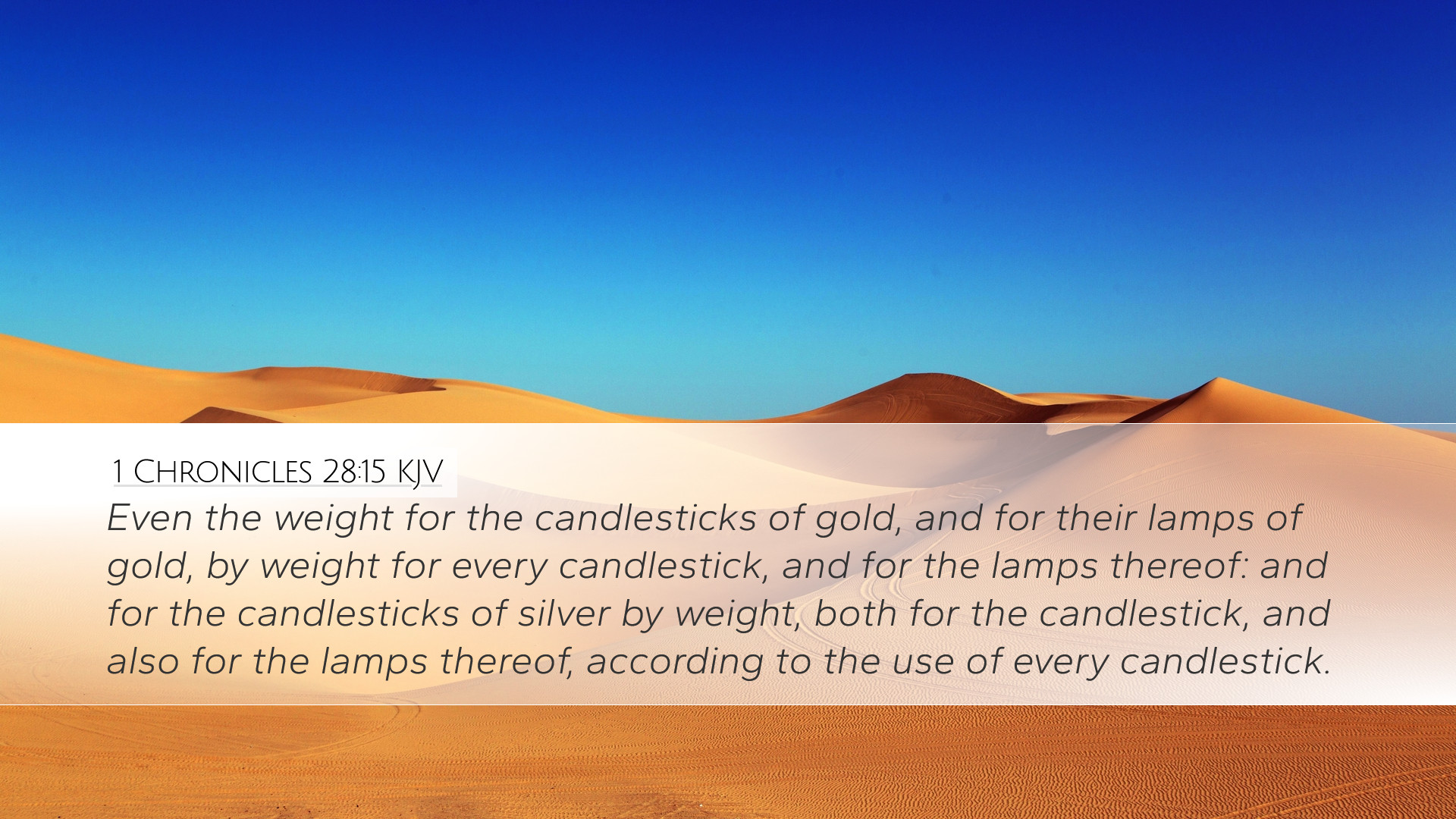Commentary on 1 Chronicles 28:15
Verse Context: In this passage, David provides specific instructions regarding the construction of the temple. It reflects a significant moment in Israel's history, as it signifies the transition of worship from a nomadic style to a settled temple system.
Verse Analysis
1 Chronicles 28:15 states:
"And the gold for the things of gold, and the silver for the things of silver, and for all manner of work to be made by the hands of artificers."
Theological Insights
This verse highlights several theological implications that are relevant for pastors, scholars, and students:
-
Divine Order in Worship:
David’s allotment of materials underscores that worship must be conducted with a structured approach, reflecting God’s grandeur and holiness.
-
God's Provision:
The mention of gold and silver symbolizes God's abundant provision for His people to fulfill His purposes.
-
The Role of Artisans:
This reflects the importance of skilled labor in the service of God, indicating that God values human effort and creativity in worship.
Commentator Perspectives
Matthew Henry
Matthew Henry emphasizes the significance of David's preparation for the temple. He remarks on how the allocation of resources reflects the seriousness of dedicating a place for God's presence. Henry argues that just as David meticulously prepared for the physical temple, Christians today should prepare their hearts as temples of the Holy Spirit.
Albert Barnes
Albert Barnes comments on the symbolic nature of gold and silver in biblical narratives. He interprets these elements as representing purity and divinity. Barnes stresses that the mention of artisans denotes the necessity of skilled workers in the body of Christ, drawing a parallel to the New Testament’s call for all believers to engage in the service of God according to their gifts.
Adam Clarke
Adam Clarke notes the detailed specifications and the care required in crafting items for the temple, which he relates to the care and reverence that should accompany worship. Clarke points out that this act of preparing also represents stewardship and the moral responsibility to use God’s gifts wisely in service to His kingdom.
Applications for Today
The insights derived from this verse can be practically applied in various ministries today:
-
Stewardship:
Church leaders are encouraged to cultivate an attitude of stewardship, recognizing that what has been given to them (talents, resources, and time) should be used for God's work, similar to how David allocated resources for building the temple.
-
Creativity in Worship:
Today’s churches should encourage creativity in worship, drawing from the artisan spirit highlighted in this verse. This can involve the arts, music, and various forms of expressions of faith.
-
Preparation for Worship:
As David prepared a place for God’s glory, Christians are called to prepare their hearts and communities for divine encounters—a reminder not to take worship lightly but to come before God with reverence and awe.
Conclusion
1 Chronicles 28:15 is a verse rich with significance that speaks to the heart of worship and the community of faith. The meticulous nature of David's instructions not only provides historical insight but also serves as a model for how the contemporary church should approach sacred responsibilities. By studying the wisdom of commentators like Matthew Henry, Albert Barnes, and Adam Clarke, we gain a deeper understanding of our role in God’s redemptive narrative.


